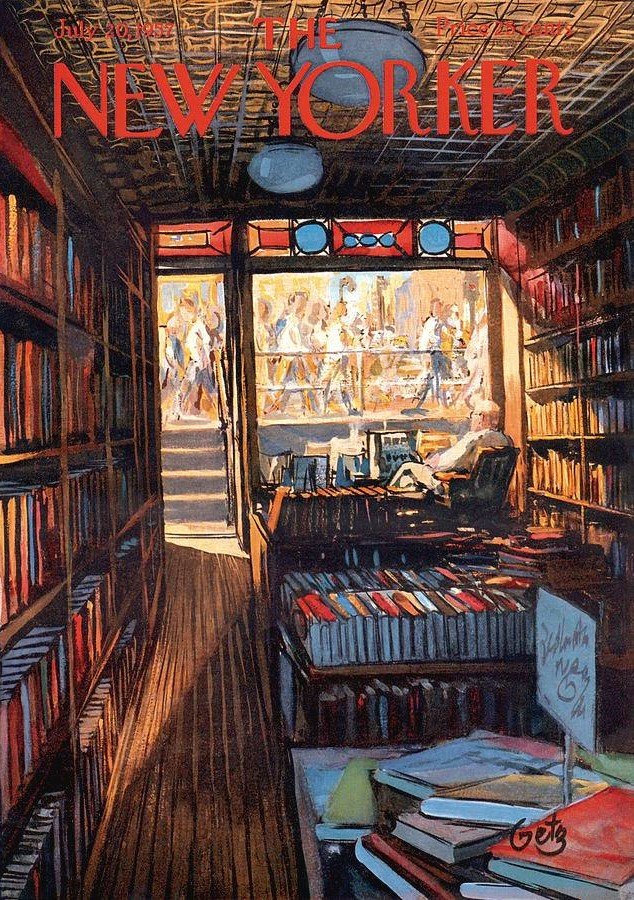
Arthur Getz (1913-1996)
A flashback to the days of haunting bookstores.
Updated Oct 5,2023
Do you suffer from bibliomania? John W. Doull does — and his Dartmouth bookstore proves it
An example of the niche bookstore I and another sporting bibliophile admire. When this was downtown across the harbor it had books piled everywhere. There was very little room to move. The sporting, aka hunting and fishing, section was small but I found a pristine first edition copy of Illumination in the Flatwoods by Joe Hutto* for short money.
New England Mobile Book Fair, Newton, MA was another similar store. Books everywhere and you could get good buys there. Steve likely was there a lot.
*It was one of the selections for Steve’s A Sportsman’s Library.
Updated Oct 6,2023
The book has many meanings. Books are companions, so we are not alone. Books are romantic, vessels for memory and emotion evoked by their heft and their smell. A 2017 study created a Historic Book Odor Wheel, which treated the emissions from old paper, leather, and the wood they rest upon like wine, sampling and analyzing air from libraries to dissect books’ bouquet: woody, smoky, earthy, vanilla, musty, sweet, almond, pungent.
Thus the modern bookstore sells not only books but candles and cologne that smell like them.
They do?
Books are feelings. Books are shields; before people were accused of avoiding human contact by staring at their phones (never mind that they could be staring at conversations with others), people were accused of antisocial behavior for reading books in public. Books mark privilege; in the libraries of the rich or the Zoom rooms of those isolating from COVID, they are status symbols. In the latter, for example, video viewers rate one another’s bookshelves and buy books just to improve their scores—“proclaiming the self through the shelf,” as the scholar Jessica Pressman put it.
I Was Wrong About the Death of the Book And Umberto Eco was right.
I remember discussing with a book friend, who painted houses, how he saw a lot of book shelves packed with old forgotten medical, or legal, books. They had to be bound in leather so they would look rich in upper middle class suburbanite homes. Content was meaningless. One second hand bookdealer was making a killing on them.
In the early 19th century, the German poet Christoph Martin Wieland asked, “If everyone writes, who will read?” More than two centuries later, contemplating blogging, The New York Times snarked: “Never have so many people written so much to be read by so few.”
Ouch! Too, true?
Reminds me a little of Gothem Book Mart on 46th street in NYC “wise men fish here”
Updated Oct 6,2023